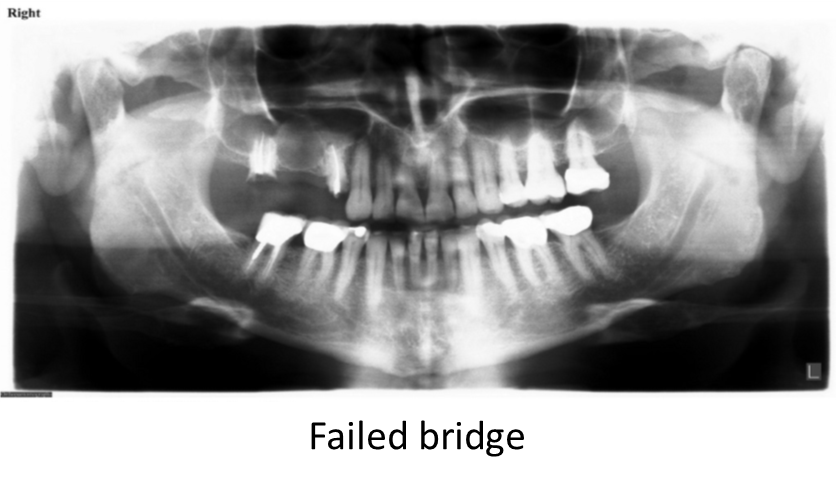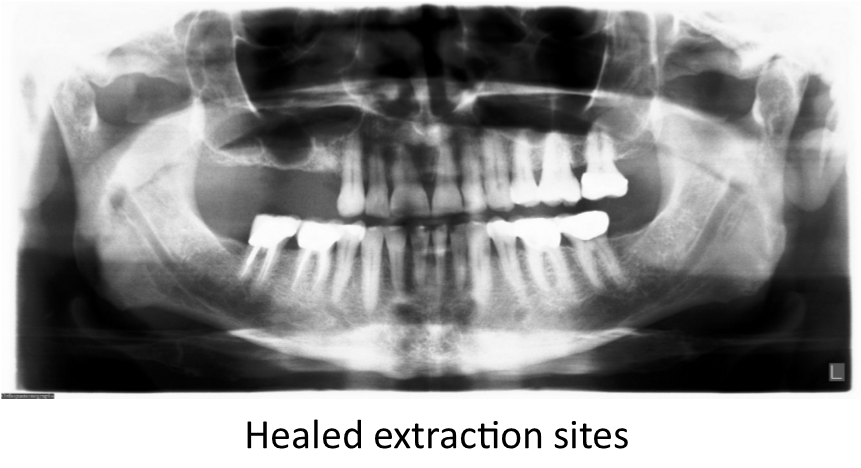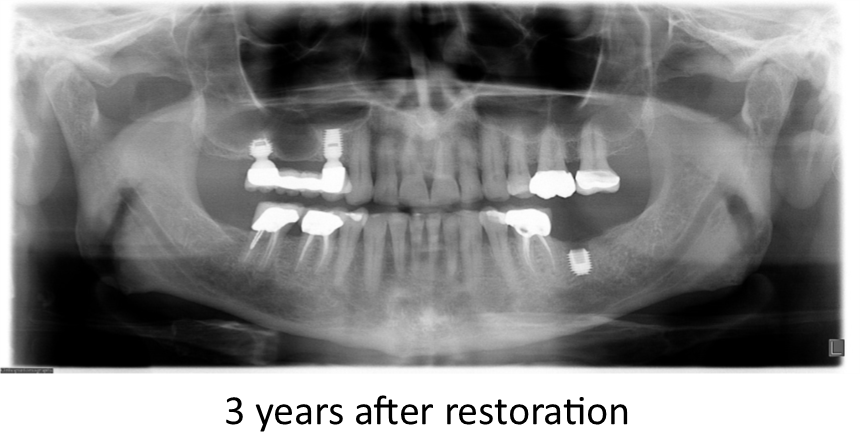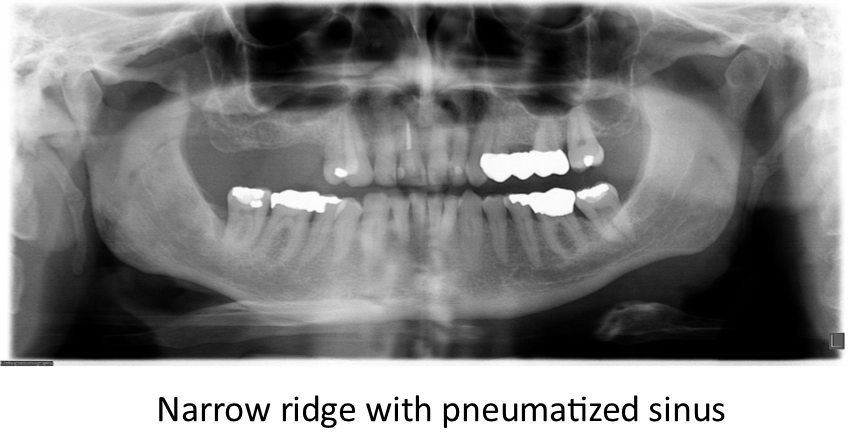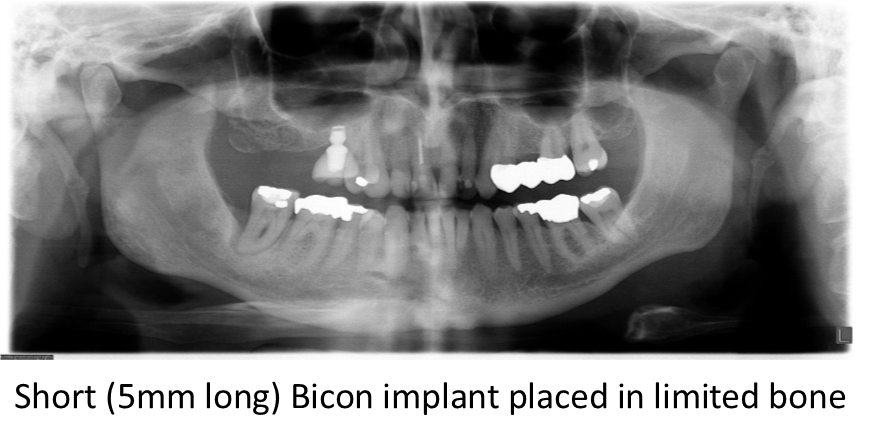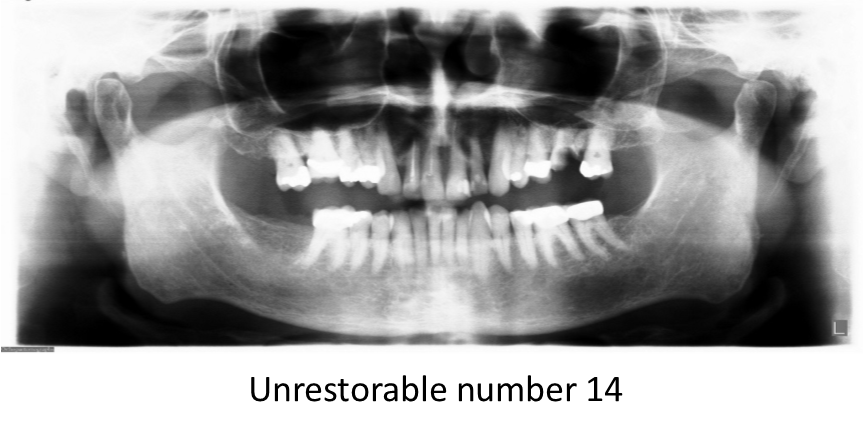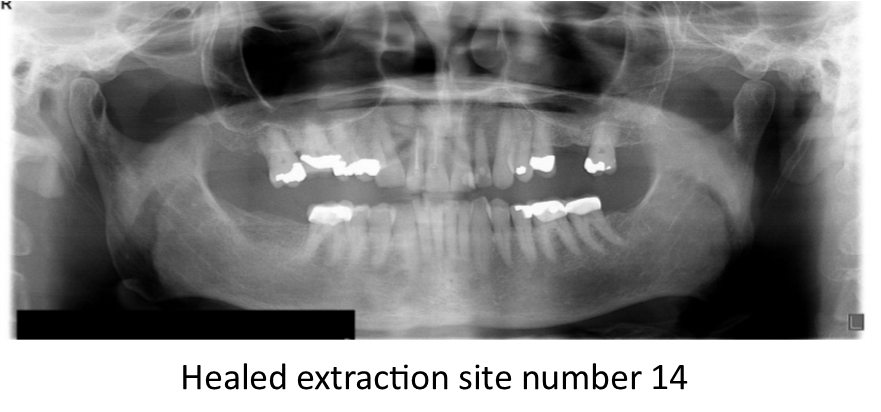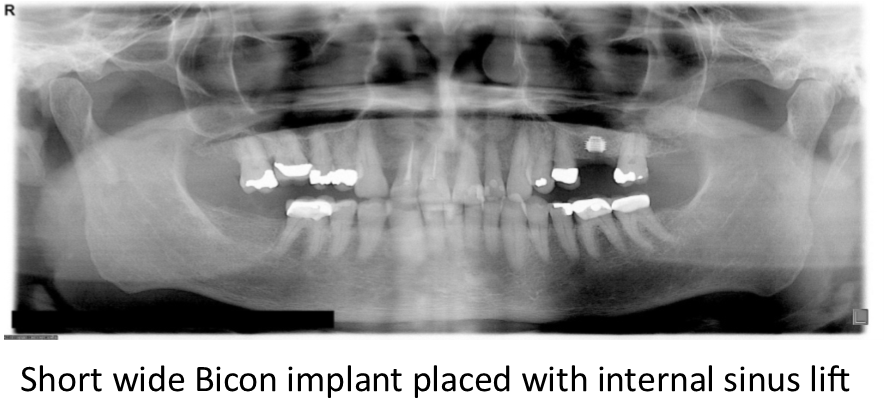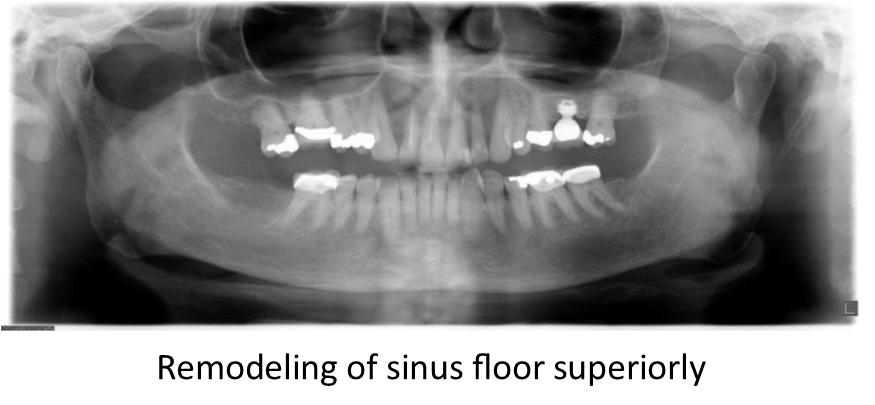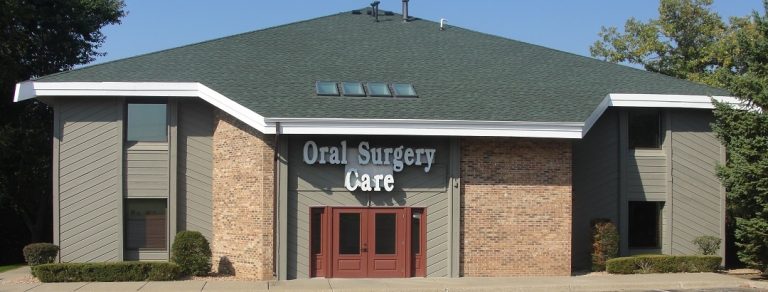
Hours:
Monday – Friday
8:00 a.m. to 5:00 p.m.
Phone:
(651) 688-8592
Frequently Asked Questions:
Frequently Asked Questions
Dental Implants
Overview of Dental Implants
Replacing missing teeth has always been a challenge for dentists, but fortunately we have added another way to replace teeth that offers many advantages over conventional methods. Dental implants allow a missing tooth to be replaced without altering or trimming down neighboring teeth that would serve as anchors for a bridge, or without relying on neighboring teeth that are not strong enough to support a bridge. Partial dentures and full dentures can be supported or retained by implants so that the function of the denture is greatly improved. The problem of a lower full denture that moves around when talking or eating can often be corrected by placing two implants in the lower jaw that hold the denture in place. Once dental implants are placed, the gradual deterioration that takes place in your jawbone where teeth are missing is slowed or eliminated.
Dental implants are titanium fixtures placed in the jaw by an oral surgeon and allowed to heal for 3 – 6 months. The implants are then uncovered and your dentist makes teeth that attach to the implants. We have seen great success with dental implants, although they are not for everyone. Dental implants can fail, especially if they are not cleaned properly. Dr. Florine can determine whether you are a suitable candidate for replacing missing teeth with dental implants by discussing with you your goals and priorities for replacing your teeth, as well as performing an oral examination and taking appropriate radiographs.
What are dental implants? A dental implant is a titanium fixture that is implanted in the jaw. It can replace a single tooth or it can be a support for a bridge or a denture.
Who is a candidate for dental implants? Anyone in reasonable health who wants to replace missing teeth. You must have enough bone in the area of the missing teeth to provide adequate anchorage for the implants. Most people today are potential candidates for dental implants to replace a single missing tooth, small bridges or removable partial and full dentures.
What is the success rate for dental implants? This depends on where the implants are placed and their function, as well as how well they are cleaned at home after they are completed. Most studies show success rates of at least 90%.
Why are dental implants so popular? Implants offer tooth replacements that attach to the jaw and usually have many advantages over methods. They are both functional and esthetic. If you want to replace missing teeth, discuss dental implants with Dr. Florine or your dentist.
Does it hurt to have a dental implant placed? Most people experience minimal discomfort following dental implant placement. Most describe the implant as less painful afterward than having a tooth extracted. The procedure can be done either under local anesthetic or intravenous sedation.
Do I go without my teeth? In most instances, temporary teeth can be worn during the healing period. On occasion, it will be recommended that a patient go without any temporary teeth for a short period of time.
Bicon Implants Showing Bone Gain Around Implants
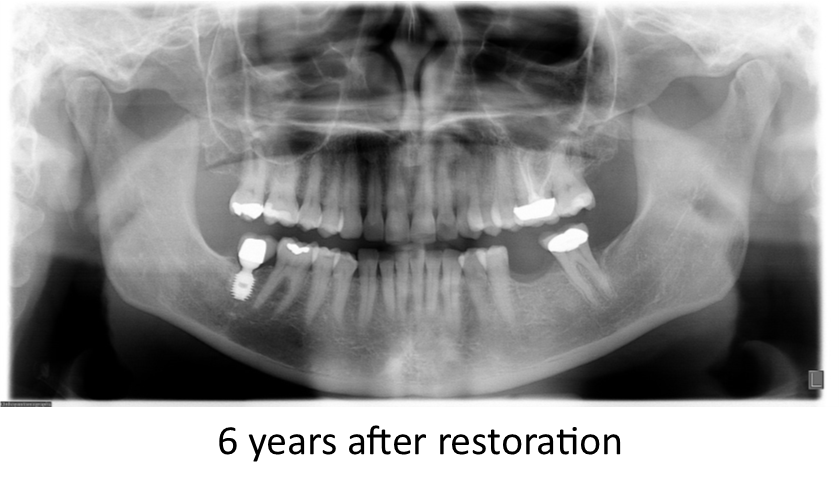
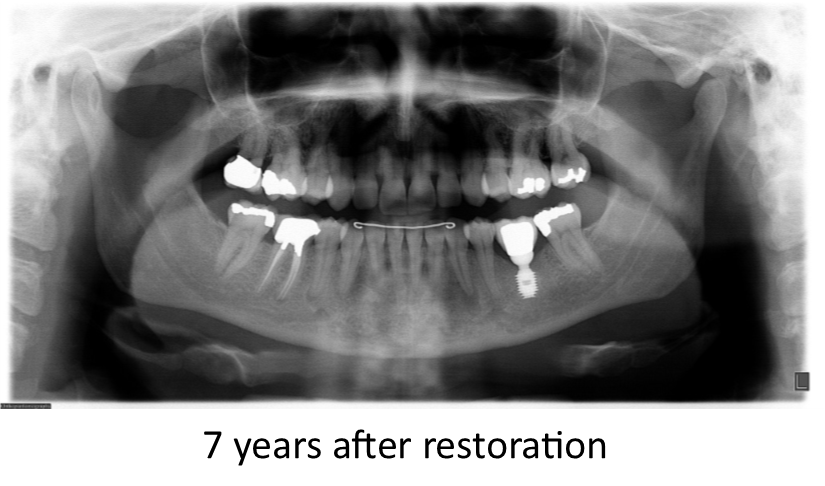
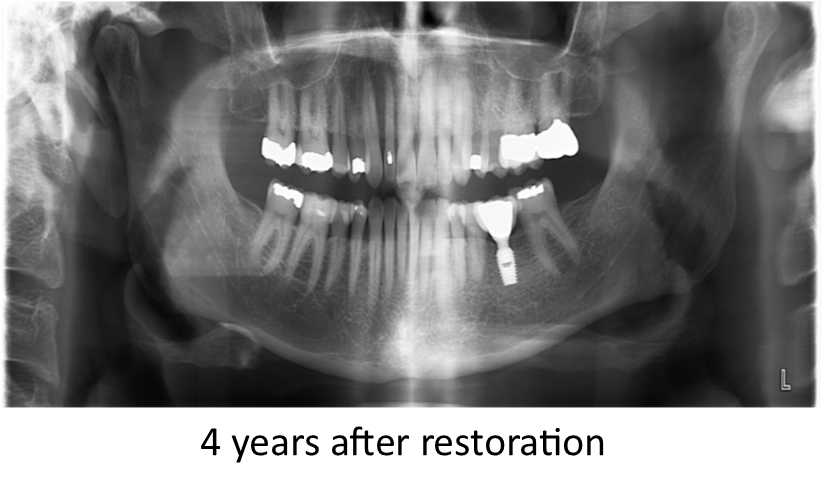
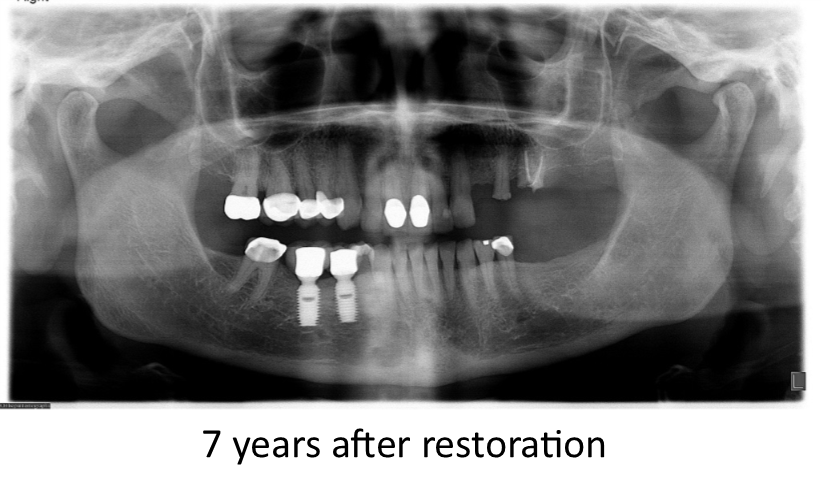
Short Bicon Implants
